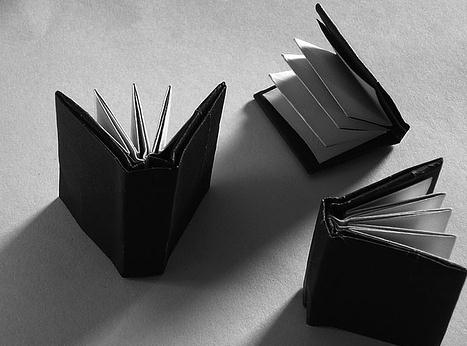下面是小编为大家整理的英语单词home用法归纳,供大家参考。

英语单词home的用法归纳1
1. 可用作名词或副词,但要注意,用于 go, come, get, arrive, send, take, bring, return, drive 等表示运动的动词之后的 home 是副词,不能在其前用介词 to。如以下各误句中的 home前的介词to应去掉:
误:She was afraid to go home.
误:He returned to home before dark.
在 on one’s way home 这类短语中,home 仍为副词,所以其前也不用介词 to。如:
I met an old friend of mine on my way home. 在我回家的路上碰到一位老朋友。
但是值得注意的是,若 home 前有物主代词修饰,home 则为名词,其前可用介词。如:
She went to her parents’ home. 她去了她父母家。
We arrived at the bride’s home. 我们到了新娘的家。
2. 正如上面已说,作为副词 home 前不能用介词 to,同样也不用介词 on, in 等。但值得注意的是,有时根据语义的需要量,其前可用at, from, near, for, without 等,如stay at home(呆在家里),far from home(离家很远),leave for home(动身回家),without friends and without home(无亲无友),等。
3. 表示“在家”这一概念,注意以下用法:
(1) 英国英语一般用 at home, 而美国英语却直接用 home(不用介词)。如:
Telephone me this evening. I’ll be (at) home. 今晚给我打电话,我会在家。
(2) 英语可说stay at home, study at home, work at home等(在美国英语可以省略其中的介词at),但是英语习惯上不说arrive at home(其中的介词at必须省略)。
(3) 表示“在……的家里”,可用“at+所有格”这一形式,如at the Smiths’(在史密斯家),at my uncle’s(在我叔叔家),等。
(4) at home除表示“在家”外,还可表示(在规定时间)在家接待客人或指像在家一样舒服自在。如:
He’s in, but he’s not at home. 他在家,但他不会客。
Make yourself at home. 请别拘束(别客气)。
有时还可表示“熟悉”“精通”“运用自如”。如:
He is completely at home in chemistry. 他精通化学。
He is quite at home with problems like this. 这类问题对他是小菜一碟。
英语单词home的用法归纳扩展阅读
英语单词home的用法归纳(扩展1)
——英语单词归纳 (菁选2篇)
英语单词归纳1
cipher n. 暗号;密码
circuitous adj. 迂回的
circular adj. 圆的;循环的
circulate v. 循环;使循环;
*circulation n. 循环
circumference n. 圆周
circumscribe v. 限制;划界限
circumspect adj. 小心的;慎重的
circumvent v. 欺诈,以计胜过
cite v. 引用;举例
civilian n. *民;adj.*民的
civility n. 彬彬有礼,斯文
clamor n. 叫嚣
clamp v. 夹
clandestine adj. 秘密的
clarify v. 阐明;澄清
clean adv. 完全地
cleanse v. 使清洁
cleft n. 裂缝
cliff n. 悬崖
clause n. 条款;分句
clergy n. 牧师
climate n. 气候
climax n. 高峰,顶点 climactic adj.顶点的,高潮的
clinch v. 揪住;钉牢
cling v. 粘附
clinic n. 门诊所
clip n. 夹子,钳子 v.夹住,修剪;
clog v. 阻碍
close adj. 亲密的;adv.紧密地
英语单词归纳2
singer ["si] 歌唱家,歌手
writer ["rait] 作家
actor ["kt] 男演员
actress ["ktris] 女演员
artist ["ɑ:tist] 画家
TV reporter [ri"p:t] 电视台记者
Hong Kong 香港
engineer [,endi"ni] 工程师
accountant ["kauntnt] 会计
policeman [p"li:smn] 男警察
salesperson ["seilz,p:sn] 销售员
cleaner ["seilz,p:sn] 清洁工
company ["kmpni] 公司
where [hwε] 在哪里,到哪里
work [w:k] 工作
factory ["fktri] 工厂
design [di"zain] 设计
tip [tip] 有用的.小建议
help [help] 帮助
money ["mni] 钱
well 好;对;满意地
enjoy [in"di] 从…获得乐趣
tourist ["turist] 旅行者;
way [wei] 路;道
motor cycle ["saikl] 摩托车
police [p"li:s] *;警察部门
英语单词home的用法归纳(扩展2)
——运动的英语单词归纳 (菁选2篇)
运动的英语单词归纳1
篮球 basketball
排球 volleyball
网球 tennis
垒球 baseball
手球 handball
曲棍球 hockey
高尔夫球 golf
板球 cricket
冰球 ice hockey
单杠 horizontal bar
双杠 parallel bars
吊环 rings
鞍马 side horse, pommelled horse
举重 weight-lifting
拳击 boxing
古典式摔跤 Greece-Roman wrestling
柔道 judo
击剑 fencing
速降滑雪赛,滑降 downhill race
障碍滑雪 slalom
跳高滑雪 ski jump
滑冰 ice skating
花样滑冰 figure skating
滑旱冰 roller skating
中长跑 middle-distance race
短跑 sprint (美作:dash)
400米栏 the 400 metre hurdles
马拉松 marathon
十项 decathlon
越野跑 cross-country race
跳高 high jump
游泳 swimming
击剑 fencing
举重 weightlifting
棒球 baseball
篮球 basketball
排球 volleyball
乒乓球 table tennis
足球 soccer
田径 track and field
手球 handball
摔交 wrestling
拳击 boxing
射箭 toxophily
射击 shooting
柔道 judo
骑马 equestrian
曲棍球 hockey
跳远 long jump (美作:broad jump)
跳水 diving
马球 polo
水球 water polo
垒球 softball
网球 tennis
赛艇 canoe
冲浪 surfing
羽毛球 badminton
跑步running
自行车cycling
滑雪skiing
体操 gymnastics
三级跳 triple jump, hop step and jump
撑竿跳 pole vault
投掷 throw
投掷运动throwing
推铅球 putting the shot, shot put
掷铁饼 throwing the discus
掷链锤 throwing the hammer
掷标枪 throwing the javelin
竞走 walk
混合泳 medley relay
爬泳 crawl
蛙式 breaststroke
仰式 backstroke
自由式 freestyle
蝶泳 butterfly (stroke)
跳水 diving competition
水球 water polo
水橇 water skiing
划船 rowing
划艇 canoe
赛艇 boat race
游艇 yacht
皮船 kayak
帆船运动 sailing
马球jockey, polo
足球 football
橄榄球 rugby
运动的英语单词归纳2
race 跑
middle-distance race 中长跑
long-distance runner 长跑运动员
sprint 短跑 (美作:dash)
the 400 metre hurdles 400米栏
marathon 马拉松
decathlon 十项
cross-country race 越野跑
jump 跳跃
jumping 跳跃运动
high jump 跳高
long jump 跳远 (美作:broad jump)
triple jump, hop step and jump 三级跳
pole vault 撑竿跳
throw 投掷
throwing 投掷运动
putting the shot, shot put 推铅球
throwing the discus 掷铁饼
throwing the hammer 掷链锤
throwing the javelin 掷标枪
walk 竞走
英语单词home的用法归纳(扩展3)
——英语单词clothes与clothing的用法与比较
英语单词clothes与clothing的用法与比较1
1. 是衣服的统称,不仅包括 coat, shirt, dress 等这样的“衣服”,而且还包括 trousers, socks 等穿在身上的所有东西。
2. 表示“衣服”,是一个没有单数形式的复数名词,其前不可加不定冠词,也不可加数词,但可用 some, these, those, many, (a) few 等词修饰。如:
I need to buy some clothes. 我需要买些衣服。
These clothes wash well. 这些衣服经洗。
You look rather shabby in those clothes. 你穿着那种衣服显得很寒酸。
I don’t have many clothes for summer. 我夏天穿的衣服不多。
As a student she lived very economically, rarely going out and buying very few clothes. 作为学生,她过得很节约,很少外出,也难得买衣服。
3. 虽然不受数词的修饰,但使用代词时可用ones。如:
When he got a job in a bank, he had to wear formal clothes instead of informal ones. 他在银行谋了份工作后不得不把非正式衣服换成正式衣服。
4. 可受某些名词修饰,表示不同用途的衣服,如school clothes(校服),sports clothes(运动服),work clothes(工作服),play clothes(休闲服)等。
它还可以受季节名词修饰,表示不同季节穿的服装,如spring clothes(春装)、summer clothes(夏装)、autumn clothes(秋装)、winter clothes(冬装)。
另外还有men’s clothes(男装),women’s clothes(女装),children’s clothes(童装)等,但是“婴儿服装”却是baby clothes,通常不说babies’ clothes。
5. 表示一套衣服,可以借助suit或set。如:
George is wearing a new suit of clothes. 乔治穿着一套新衣服。
I’m going to take a set of clean clothes with me. 我要带一套干净的衣服。
英语单词home的用法归纳(扩展4)
——单词access的用法归纳3篇
单词access的用法归纳1
(1) 无论表示哪个意思,均不可数,如以下各例的access既不能用复数,也不能在其前用不定冠词:
All prisoners have access to a lawyer. 所有犯人都有权见律师。
She was forbidden access to the club. 人家不允许她到那个俱乐部去。
I have read-only access to my bank files. 我用只读方式存取我的银行文件。
(2) 要表示“对……的使用(了解、接近、进入等)”,其后习惯上接介词to。如:
Students need easy access to books. 学生需要方便地借阅图书。
Access to employees" records is restricted. 查看雇员档案的"权利是受到限制的。
This is the sole means of access to the building. 这是进入大楼唯一的方法。
Only high officials had access to the president. 只有高级官员才可以接近总统。
There is no access to the house from the main road. 从大路上没有办法进入这所房子。
Only a few people have access to the full facts of the incident. 只有几个人可以知道事件的全部真相。
I lived deep in the country, without easy access to shops. 我远居乡村,到商店购物十分不便。
(3) 注意be easy (hard, difficult) of access这类表达,其意为“容易(难)接近(进入等)”;注意其中的介词用of,不用to。如:
This place is easy of access. 这地方四通八达。
The village is difficult of access. 到那个村子的路很很难走。
英语单词home的用法归纳(扩展5)
——常见的水果英语单词总结
常见的水果英语单词总结1
apple 苹果
pear 梨
apricot 杏
peach 桃
grape 葡萄
banana 香蕉
pineapple 菠萝
plum 李子
watermelon 西瓜
orange 橙
lemon 柠檬
mango 芒果
strawberry 草莓
medlar 枇杷,欧查果
mulberry 桑椹
nectarine 油桃
cherry 樱桃
pomegranate 石榴
fig 无花果
tangerine 柑子
persimmon 柿子
walnut 胡桃
hazelnut 榛子
peanut 花生
date 枣
chestnut 粟
currant 醋粟
coconut, cocoanut 可可
bilberry 越桔
blackberry, blueberry 黑莓
avocado 鳄梨
black currant 红醋栗
blood orange 红橙
citron, grapefruit 香橼
damson 大马士革李
almond 巴旦杏
nutmeg 肉豆蔻
papaya, papaw 番木瓜
guava 番石榴
pistachio 阿月浑子
prickly pear 仙人掌果
raspberry 覆盆子
soursop 刺果番荔枝
英语单词home的用法归纳(扩展6)
——来自汉语的英语单词
来自汉语的英语单词1
1. Kung fu (1966年来自“功夫”)
2、Yin yang (1671年来自“阴阳”)
3、Kowtow (1804年来自“叩头”)
4、Tofu (1880年来自“豆腐”)
5、Lychee或litche (1588年来自“荔枝”)
6、Gung ho或gung-ho(热心) (1939年来自“工合”)
7、Mahjong或Mah-jong (1920年来自“麻将”)
8、Feng shui (1797年来自“风水”)
9、Tai chi (1736年来自“太极”)
10、Yamen (1747年来自“衙门”)
11、Kaolin (1727年来自“高岭”)
12、Kylin (1857年来自“麒麟”)
13、Longan (1732年来自“龙眼”)
14、Pe-tsai (1795年来自“白菜”)
15、Petuntse (1727年来自“白墩子”)
16、Sampan (1620年来自“舢板”)
17、Suan-pan (1736年来自“算盘”)
18、Tao (1736年来自“道”)
19、Taipan(大商行的总经理) (1834年来自“大班”)
20、Toumingdu(透明度) (来自1980年代中英谈判期间用语“透明度”)
21、Tuchun (1917年来自“督军”)
22、Tung(油桐属) (1788年来自“桐”)
23、Ho-ho bird (1901年来自“凤凰”)
24、Wampee(一种果) (1830年来自“黄皮”)
25、Whangee(一种竹) (1790年来自“黄藜”)
26、来自粤语
27、Typhoon (1771年来自“台风”)
28、Dim sum (1948年来自“点心”)
29、Yum cha (大概15年前来自“饮茶”[2004])
30、Wok (1952年来自“镬(炒锅)”)
31、Bok choy (1938年来自“白菜”,比Pe-tsai常用)
32、Chop-suey (1888年来自“杂碎”)
33、Won ton (1948年来自“云吞”)
34、Chow mein (1903年来自“炒面”)
35、Paktong(一种钱币) (1775年来自“白铜”)
36、Sycee(一种钱币) (1711年来自“丝”)
37、Souchong(一种茶) (1760年来自“小种”)
英语单词home的用法归纳(扩展7)
——果蔬类的英语单词
果蔬类的英语单词1
apple苹果
banana香蕉
pear梨
orange橙
watermelon西瓜
grape葡萄
eggplant茄子
greenbeans青豆
tomato西红柿
potato土豆
peach桃
strawberry草莓
cucumber黄瓜
onion洋葱
carrot胡萝卜
cabbage卷心菜
英语单词home的用法归纳(扩展8)
——英语单词之常用名词
英语单词之常用名词1
1、clothes:衣服
2、garments:外衣
3、wardrobe:衣柜
4、double-breasted suit:双排扣外衣
5、clothing:(总称)衣服
6、ready-made clothes:成衣
7、suit:套装
8、ready- to-wear:现成服装
9、dress:女装
10、men’s wear::男装
11、women’s wear:女装
12、everyday clothes:便服
13、three-piece suit:三件套
14、underwear:内衣
15、uniform:制服
16、overalls:(美)工装裤
17、cuff:袖口
18、formal dress:礼服
19、buttonhole:纽扣孔
20、tailcoat, 燕尾服,
21、morning coat:大礼服
22、shirt:衬衫
23、blouse:女衬衫
24、evening dress:晚礼服
25、zeal:热情





